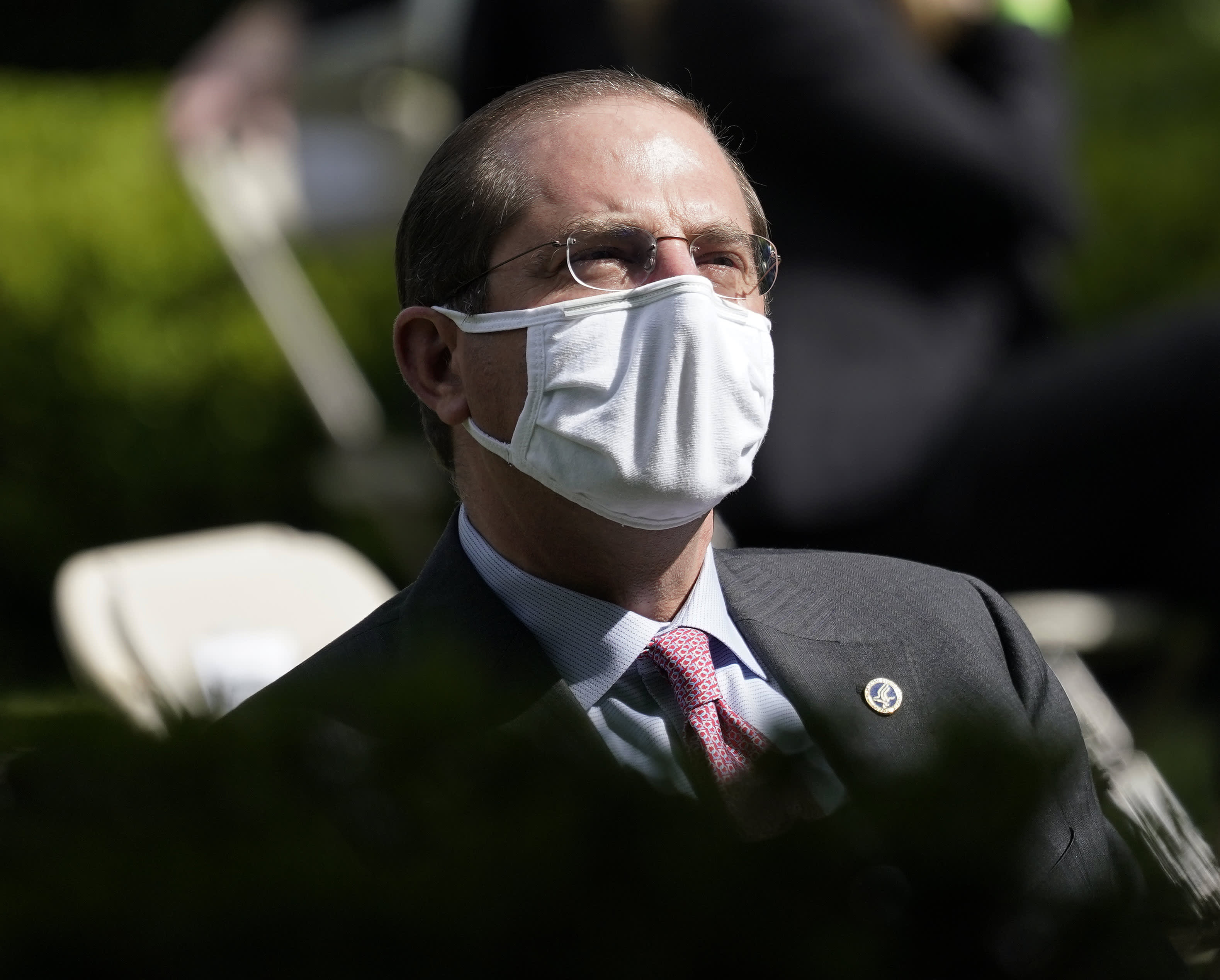
Secretary of Health and Human Services, Alex Azar wears a face mask while attending a press briefing about coronavirus testing in the Rose Garden of the White House on May 11, 2020 in Washington, DC.
Drew Angerer | Getty Images
Health and Human Services Secretary Alex Azar insisted Thursday that the government’s Nov. 1 deadline for states to set up coronavirus vaccine distribution sites has nothing to do with the presidential election two days later.
The Centers for Disease Control and Prevention has asked governors and health departments to prepare to distribute a vaccine as soon as November. In a letter dated Aug. 27, CDC Director Dr. Robert Redfield said states will soon receive permit applications from medical supply company McKesson, which HHS tapped to help distribute the vaccine. He said they may need to waive some licensing and permit requirements that could delay the process.
The deadline raised concerns among public health experts and scientists that approval of a vaccine will be politically motivated and the White House may be pressuring regulators to get a vaccine to the market ahead of the presidential election on Nov. 3.
“It has nothing to do with elections. This has to do with delivering safe, effective vaccines to the American people as quickly as possible and saving people’s lives,” Azar said Thursday morning in an interview with CBS. “Whether it’s Oct. 15, whether it’s Nov. 1, whether it’s Nov 15, it’s all about saving lives but meeting the FDA standards of safety and efficacy.”
He said “career people at CDC” came up with the deadline, indicating that political appointees such as himself weren’t involved in the process.
“Nobody involved in this process is ever going to compromise on making sure that a product someone puts in their body is safe and effective,” he said.
Azar said the deadline was made by Dr. Nancy Messonnier, director of the CDC’s National Center for Immunization and Respiratory Diseases, and other CDC staff working on vaccine distribution planning. He said any vaccine data will be reviewed by the Data and Safety Monitoring Board, an independent group of experts who monitor patient safety and treatment data.
“We need to be ready for all contingencies and that’s why the CDC is doing this,” he said.
U.S. health officials have been accelerating the development of vaccine candidates by investing in multiple stages of research even though doing so could be for naught if the vaccine ends up not being effective or safe.
The U.S., as part of the Trump administration’s Operation Warp Speed initiative, has already invested billions of dollars in six potential vaccines, including from drug companies Pfizer, Moderna and AstraZeneca, which entered phase three trials. Data on at least one of the trials could come as soon as November, according to Dr. Anthony Fauci, the nation’s leading infectious disease expert.
Earlier this week, FDA Commissioner Dr. Stephen Hahn told the Financial Times that the agency is prepared to bypass the full federal approval process in order to make a Covid-19 vaccine available as soon as possible.
Insisting the agency wasn’t being pressured by the Trump administration to fast track a vaccine, Hahn said an emergency authorization could be appropriate before phase three clinical trials are completed if the benefits outweigh the risks.
U.S. and international health officials have said the U.S. needs to prepare for vaccine distribution now, including deciding who will get the vaccine first and how.
On Tuesday, the National Academies of Sciences, Engineering, and Medicine released a draft proposal for distributing a coronavirus vaccine in the U.S. if and when one is approved for public use.
The vaccine would be distributed in four phases, with health-care workers and vulnerable Americans, such as the elderly and those with underlying health conditions, getting it first, according to the group. The report was requested by the National Institutes of Health and the CDC.




